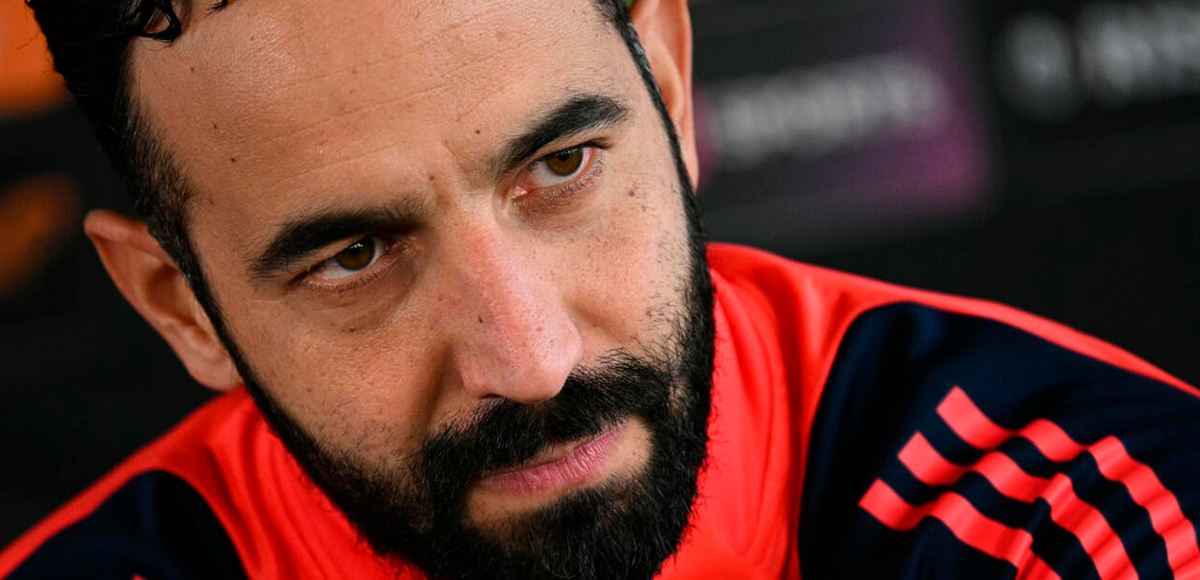In what may be remembered as a microcosm of Manchester United’s turbulent season, Ruben Amorim’s side clawed back from the brink at Goodison Park, snatching a 2-2 draw against Everton in their final visit to the grand old stadium. A tale of two halves—hapless fragility followed by defiant resolve—the match encapsulated the paradox of a team still searching for its identity under the Portuguese tactician. For RedMancunian, we unpack the chaos, the controversy, and the flickers of hope in a game that refused to fade quietly into Merseyside history.
Goodison’s Last Dance: A Fitting Stage for Drama
As Everton prepare to abandon their 133-year home for Bramley-Moore Dock, this fixture carried the weight of nostalgia and finality. Yet for United, the occasion risked becoming another footnote in a season plagued by false dawns. Amorim, tasked with steadying a ship still reeling from Erik ten Hag’s disjointed reign, faced an Everton side buoyed by recent form—a team unbeaten in six, hungry to etch one last memory into Goodison’s creaking stands.
What unfolded was a spectacle drenched in tension, VAR drama, and a comeback that laid bare both United’s flaws and their flickering spirit.
First Half: Systemic Collapse and the Ghosts of Old Trafford
The opening 45 minutes were a forensic examination of United’s lingering frailties. Everton, sharper and savvier, exploited set-piece vulnerabilities that have haunted the Reds for years. Beto’s 19th-minute opener—a scrambled finish from a recycled corner—felt inevitable, a symptom of United’s chronic aerial timidity. Worse followed when Abdoulaye Doucouré, unmarked and unchallenged, nodded home a second after Andre Onana parried Jack Harrison’s effort into his path.
Amorim’s tactical setup, a 4-3-3 designed to dominate possession, instead frayed at the edges. Midfield anchor Manuel Ugarte, usually a metronome, was overrun by Everton’s press, while the defensive line—marshalled by an erratic Harry Maguire—resembled strangers in a high-stakes game of musical chairs. Patrick Dorgu’s bright runs down the left offered fleeting promise, but Jordan Pickford’s intervention to deny Rasmus Højlund epitomised a half defined by United’s impotence.
“We were ghosts out there,” lamented a club insider at halftime. “No fight, no cohesion—just passive.”
Amorim’s Interval Alchemy: Shifting the Tide
Whatever was said at halftime ought to be bottled. United reemerged with a ferocity that betrayed their first-half torpor. The introduction of Joshua Zirkzee for the anonymous Jadon Sancho injected directness, while Bruno Fernandes—deployed deeper to dictate play—began pulling strings with vengeful intent.
Yet Everton nearly killed the contest early in the second half. Onana, maligned but pivotal, denied Doucouré a brace with a reflex save, moments before Maguire’s penalty shout—a tangle with James Tarkowski—was waved away. The reprieve ignited United’s dormant fire.
The Comeback: Fernandes, Ugarte, and VAR’s Mercy
The catalyst, as so often, was Fernandes. His 70th-minute free-kick—a thunderbolt whipped into the bottom corner—was a captain’s riposte, a blend of technique and defiance. Goodison, raucous moments earlier, fell into uneasy silence.
Ugarte’s equaliser, ten minutes later, was pure chaos meets artistry. Meeting a cleared free-kick 20 yards out, the Uruguayan cushioned the ball with his torso before lashing a left-footed volley past Pickford. Cue bedlam in the away end—a cathartic release for supporters starved of such moments this season.
But the drama wasn’t done. Six minutes of stoppage time brought a VAR controversy that encapsulated modern football’s absurdity. Ashley Young, once a Red, went down under De Ligt and Maguire’s challenge, prompting referee Andy Madley to point to the spot—only to reverse his decision after a torturous review. Onana’s earlier save from Idrissa Gueye proved decisive, sparing United a cruel defeat.
Tactical Takeaways: Progress or Papered Cracks?
Amorim will take solace in the fightback, but questions linger. United’s set-piece frailty remains a festering wound, while the midfield’s first-half disconnect raises doubts about Ugarte’s role as a lone pivot. Yet positives emerge: Zirkzee’s physicality troubled Everton’s backline, and Fernandes’ leadership—once criticised—shone when it mattered most.
Everton, for their part, will rue missed chances. Beto’s profligacy—a point-blank header saved by Onana—proved costly, while Doucouré’s influence waned as United’s press intensified.
Goodison’s Parting Gift: A Metaphor for United’s Season
As the final whistle blew on Goodison’s last United showdown, the result felt emblematic of Amorim’s tenure thus far: flawed, frenetic, but undeniably alive. For all their struggles, the Reds showed a resilience absent in recent years—a trait the Portuguese must nurture if he’s to succeed where others faltered.
Yet the broader picture remains murky. Sir Jim Ratcliffe’s cost-cutting measures loom large, and with Champions League hopes dangling by a thread, this draw—though valiant—changes little. As one fan quipped, “We’re the kings of the moral victory—now let’s start winning proper.”
In the Cold Light of Day
United depart Merseyside with a point, but the performance posed more questions than answers. Can Amorim fix a defence that switches off at set-pieces? Is Onana’s shot-stopping enough to offset his erratic command? And when will this team consistently mirror the grit of that second half?
For now, the Reds live to fight another day. But as Goodison’s lights dim for the final time, United’s rebuild under Amorim remains very much a work in progress—a project as unpredictable as the match that unfolded here.


